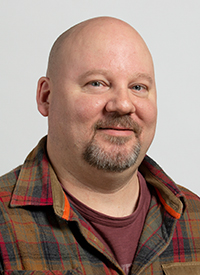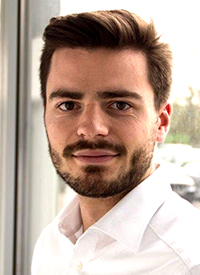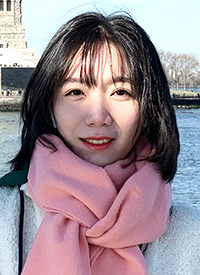Some of the world’s best coffee grows in forested, mountainous areas along the equator in Central America, Africa and Asia. Starbucks buys its beans from nearly 400,000 mainly small farms in more than two dozen countries in these regions.
The Seattle-headquartered company now has launched what it calls a bean-to-cup initiative to pull back the curtain on this side of its supply chain. This ensures that the best, most ethical practices are used growing and harvesting the coffee beans. The initiative also could potentially share the stories of the people growing the beans with the people buying cups of coffee.
Starbucks is looking to incorporate data and technology in this effort. To do so, the coffee giant turned to the University of Washington’s iSchool to brainstorm ideas.

Forty-one students who take classes with iSchool Lecturer Greg Hay volunteered last summer to look at how the internet of things and blockchain could be used in this initiative as well as how improve the supply chain.
The internet of things is the concept of devices sending data to other devices without human intervention. Blockchain, used in cryptocurrencies, is a digital record of transactions made available to all parties in a public database.
The students divided into seven teams to tackle the task. Students Alex Davis and Lili (Lihua) Deng were among the team leaders.
Davis’s group zeroed in on packaging used in shipping coffee. The group found that the beans traditionally have been shipped in 62-kilogram jute bags, similar to burlap sacks.
In doing their research, Davis’s group learned that there are hermetically sealed bags that can be shipped on pallets with sensors that provide tracking data. His group argued that the fabric of the current jute bags allows too much variability.
For a company that sells billions of cups of a coffee each year, preventing even a small amount of waste per bag could mean huge savings. The group created a database to illustrate how much even small variabilities can add up.

Data from the pallets can also ensure the farmers are getting credit for their work, said Davis, a Germanics major who is taking an Informatics minor through the iSchool. He said he plans to apply to the iSchool’s Master of Science in Information Management (MSIM) program.
“It can be tough to try to make sure that everyone is paid properly and especially if they don't have technology to track it,” Davis said. “I understand that currently a lot of it's just done through writing stuff down. So, it's very difficult to really ensure that everyone gets paid their fair share.”
Deng’s group created a database to track how weather, humidity and other factors could affect the beans in shipping.
During their initial research, Deng’s group looked at how the beer and wine industries have made use of the internet of things to collect data on shipping. Coffee farmers haven’t made widespread use of this technology yet, said Deng, who is a student in the MSIM program, specializing in data science and business intelligence.

“Starbucks has some information challenges,” Deng said. “What we recommended Starbucks do was to implement (the internet of things) and blockchain to collect more measurable data using sensors.”
Davis, Deng and the other team leads took light rail from the UW campus to Starbucks headquarters to present their findings this past November.
Starbucks has worked with UW students on projects in the past, said Katherine Carlson, the company’s director of business integration. She’s also familiar with the iSchool. She teaches part-time as a lecturer at the school.
“I always find with lecturing, one of the things that students really appreciate … is any time they able to work on real-world projects or absorb real-world examples,” Carlson said. “And, of course, it's helpful for us as well.”
Starbucks systems analyst Chris Ross is working on the bean-to-cup initiative. He’s also a 2017 Informatics graduate from the iSchool.
“A lot of what the students presented was very in line with what we've been thinking about as well,” Ross said. “So, it was great to cross check on what my group had been thinking and validate that.”
iSchool lecturer Hay has arranged these projects with companies in the area for several years. The projects are dress rehearsals for the more formal Capstone projects later in the students’ academic careers. It also provides invaluable experience and contacts in the community.
“Students have little leverage leaving campus other than what they've done for internships,” Hay said. “They want to put something on their resumes. They want the challenge. They want to network.”
Deng has previously volunteered on these projects at the Fred Hutchinson Cancer Research Center. She is already working on another one that Hay has arranged with Microsoft.
“I'm in the business intelligence track, so we're interested in building databases to help real businesses solve these challenges,” she said.